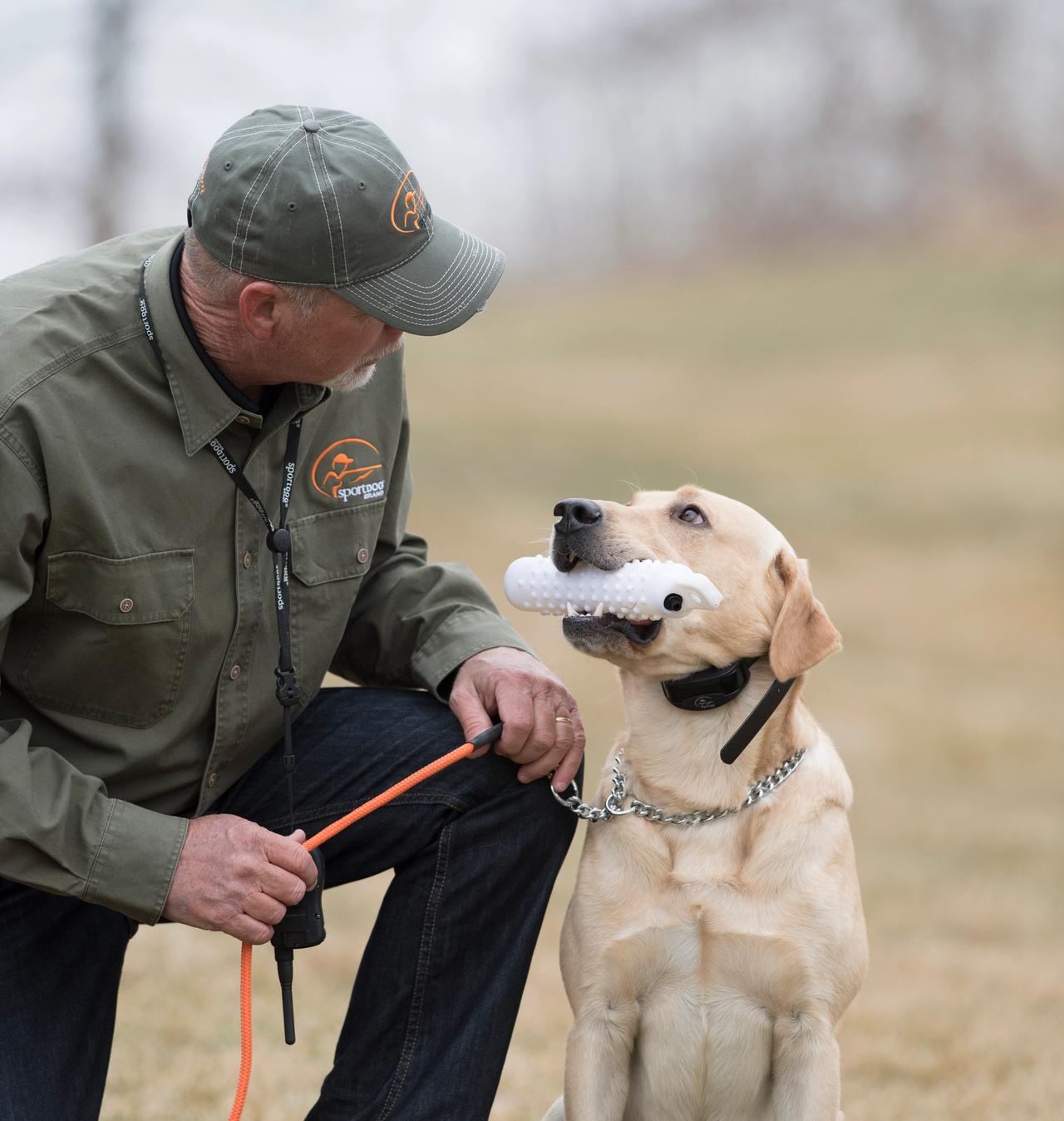
Training Commands: Speak Less, Reinforce More
Posted by Charlie JurneyNo matter how good our intentions, we hunters and dog trainers as a whole commit one error that sets our training progress back and creates additional problems. We commit this error over and over again, and it’s vitally important to recognise it and fix it. What am I talking about? It’s the constant repeating of commands without reinforcement.
Here’s a typical scenario. You’re walking your dog to heel. When you stop, you want your dog to sit, so you command, ‘Sit’. Your dog ignores you, so you repeat, ‘Sit’. He ignores you again, so this time you say it even louder: ‘Sit!’ At that point you might even start talking more: ‘Lucky, sit! Sit, now! I said, sit!’ At that point your dog knows you might be getting ready to actually do something he won’t like, so he finally sits. Wow, that was a lot of time and energy spent just getting your dog to comply with a simple command! If you keep this pattern up, what’s life going to be like when you get into the duck or pheasant season? I can answer that: You’re going to spend more time shouting at your dog than actually hunting.
Let’s break down what’s going on here. First, your dog very quickly learns to count; he can figure out how much time and how many commands he will hear before he really needs to comply. Secondly, your dog learns that your commands are open for debate. You’ve taught him that your word is not a true command; rather, it’s a request. This situation is unacceptable if you intend to develop an obedient, reliable hunting dog.
The system I follow is that you issue an instruction once. If the dog doesn’t respond, he should be corrected. The initial correction is always verbal, followed by reinforcement if he doesn’t obey. For instance, you tell your dog, “No.” No reaction? You then count to one-thousand-one and repeat the instruction “No” whilst applying a physical correction, which you continue until your dog obeys. The nature of the physical correction depends on the tools you’re using at that stage in the dog’s training. It might be a lead tug, e-collar stimulation or both (again, depending on the phase of your dog’s training). When the dog complies, lead and/or e-collar pressure is released and you praise him with a “Good dog” and a pat on the shoulder. He must understand that nothing adverse ever results from obeying an instruction. Rather, compliance with an instruction ensures he will be praised.
There is never a time when it is acceptable for a dog's instincts to be 'more correct' than your commands. Instincts are what cause a dog to make these improper decisions. In fact, instincts sometimes lead us humans to make improper decisions too. I use the analogy of scuba diving. When a diver is deep in the ocean and encounters a problem, he tends to panic. His instinct is to shoot up to the surface quickly, which could be disastrous due to the too-rapid pressure change. The reality is that if a diver just stays down and relies on his training, which means formulating a plan for a safe, controlled ascent to the surface, everything will be fine.
A dog's first instinct to get out of a situation he doesn't want to be in is to bolt away. If he can't get away, in some cases his next option might be to turn and bite. And if he can't do either of those, he's likely to just lie down and give up. We need to remove all those options with some type of control, and show him that there's an easier path, which is to follow his training.
Next time your dog is slow to respond to a command, think about how this situation may have developed. Then promise yourself you’re not going to repeat commands over and over without taking action. It will all pay off in the long run.
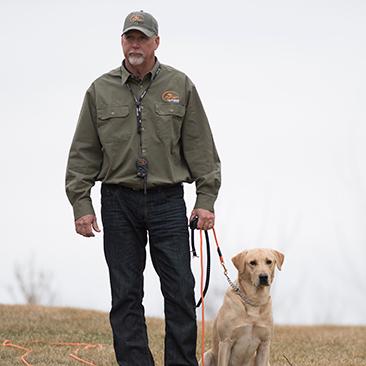
Charlie Jurney
Piedmont, NC
Charlie Jurney has been training performance and hunting dogs for more than 30 years. During that time, he has produced hundreds of titled dogs including Grand Hunting Retriever Champions, Hunting Retriever Champions, Master Hunters, Grand Master Hunting Retriever Champions, and Master Hunting Retrievers. His writings have been featured in The...
Related Products
Related Articles
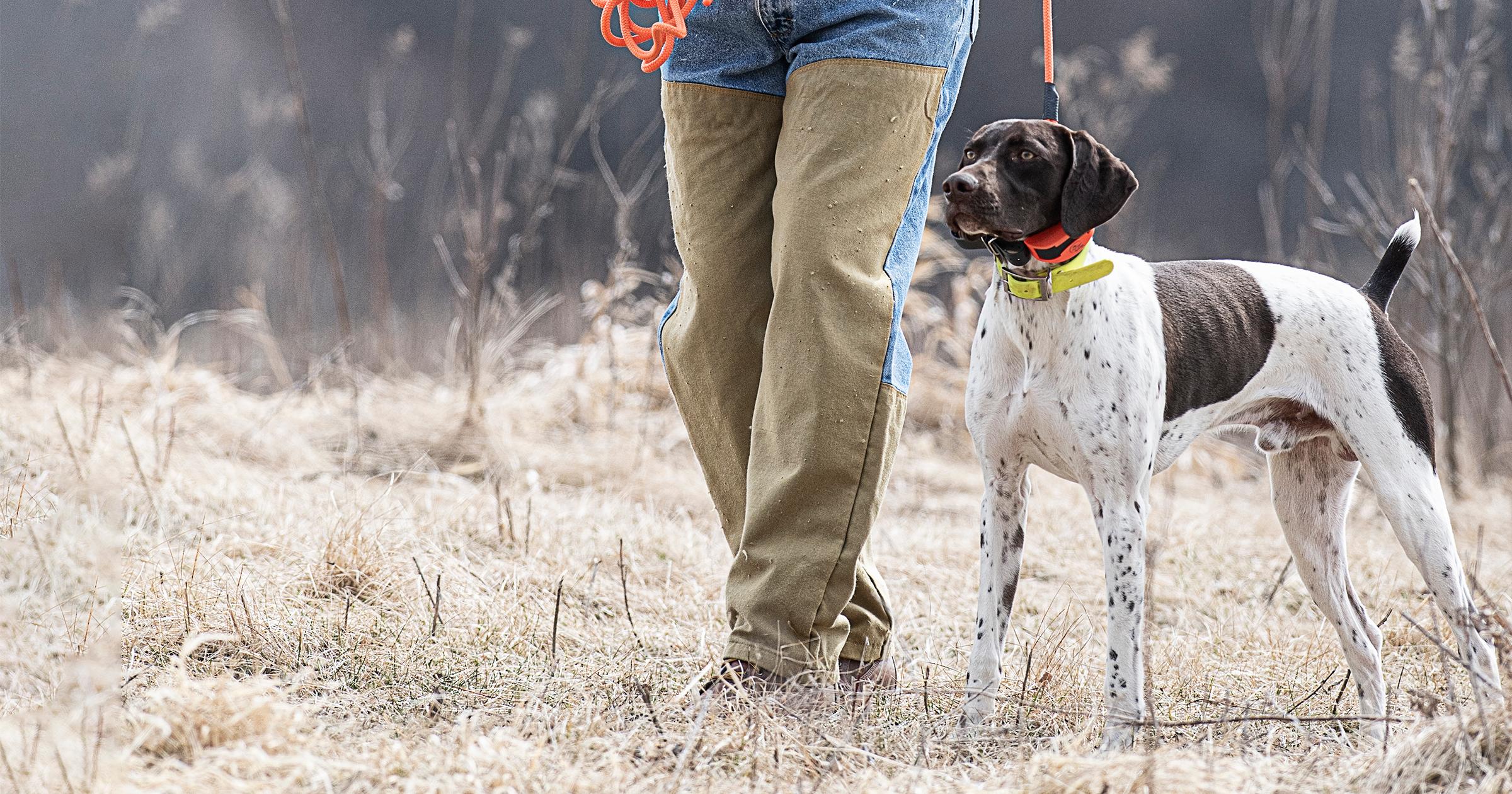
Talent Is Not Obedience
by The SportDOG Staff
Whoa! Can your hunting dog 'whoa' or stop immediately? Does it always come when called? Will it turn on command or always sit or lie down when instructed? Will it gently deliver a bird to your hand without chewing the least little bit? Good bird dogs have been...
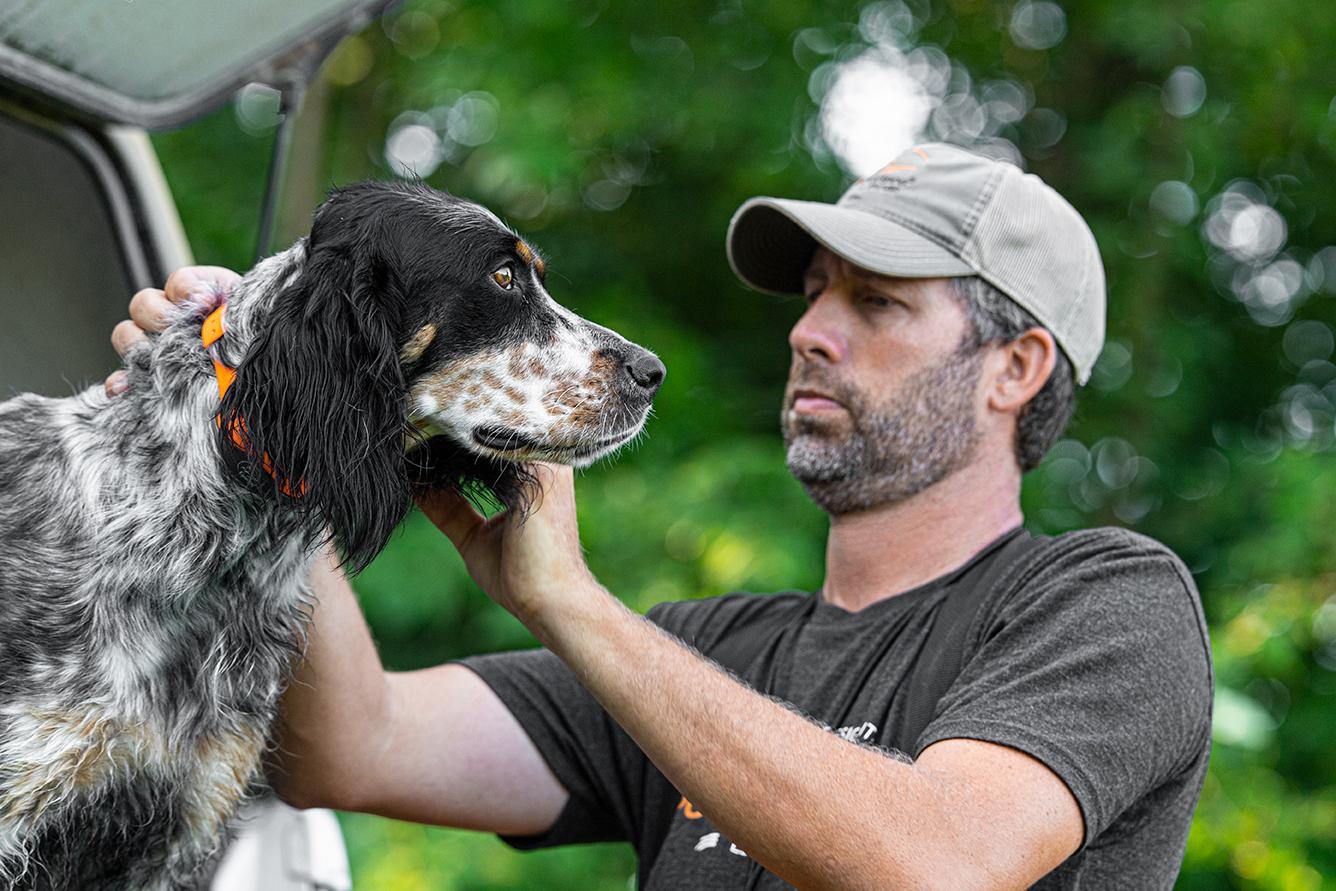
Understand This Before You Train
by Charlie Jurney
Every animal on the planet has an alpha or beta relationship with every other animal. We usually think of 'beta' as submissive and beaten down, but in wild packs or herds, that is not the case. The beta dog in a pack of wild dogs is still quite happy and...
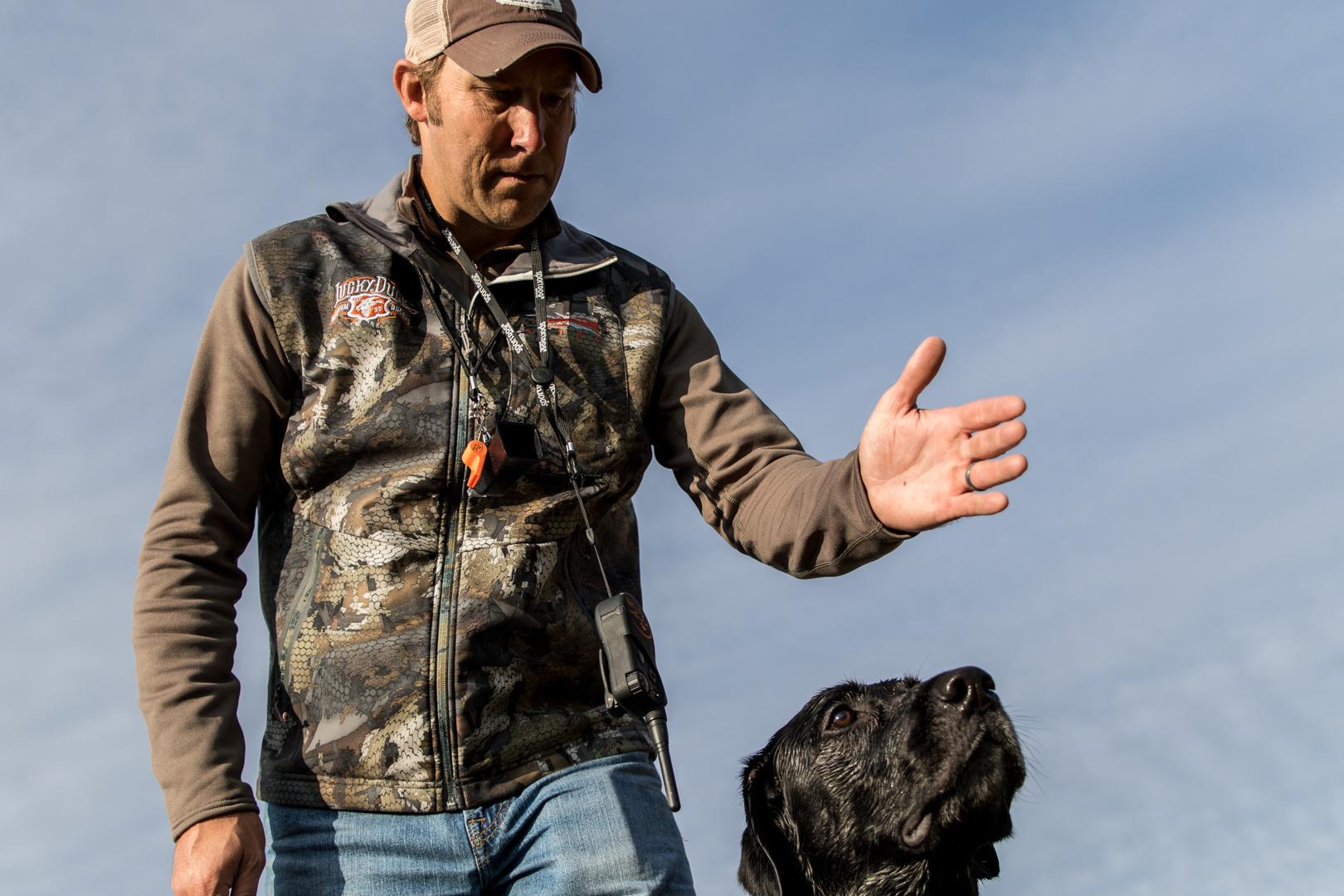
10 Mistakes in Gundog Training and How Not to Make Them - Part 1
by The SportDOG Staff
The best thing about the years that we and our ProStaffers have spent training dogs is that we've made the mistakes. We extol the value of mistakes because you will learn from them even more than your successes, but there's no reason you can't learn from ours. We constantly hammer...
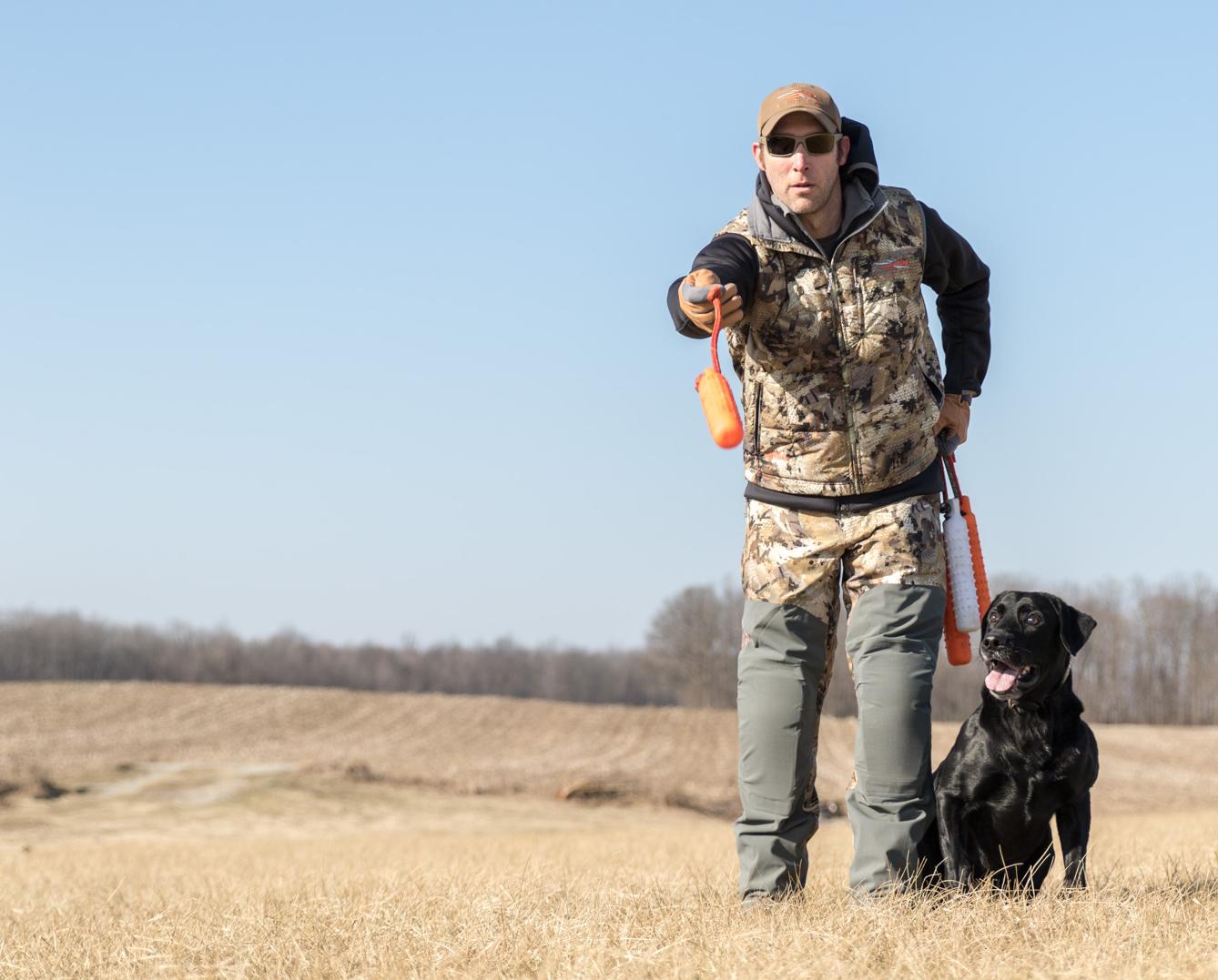
10 Mistakes in Gundog Training and How Not to Make Them - Part 2
by The SportDOG Staff
Read the first 5 mistakes to avoid with gundog training in the first article in this series. Not Adapting to the Dog No two dogs are exactly alike. Like children, they all learn differently, have different strengths and possess that free-will thing that can leave you grinding your teeth in...

